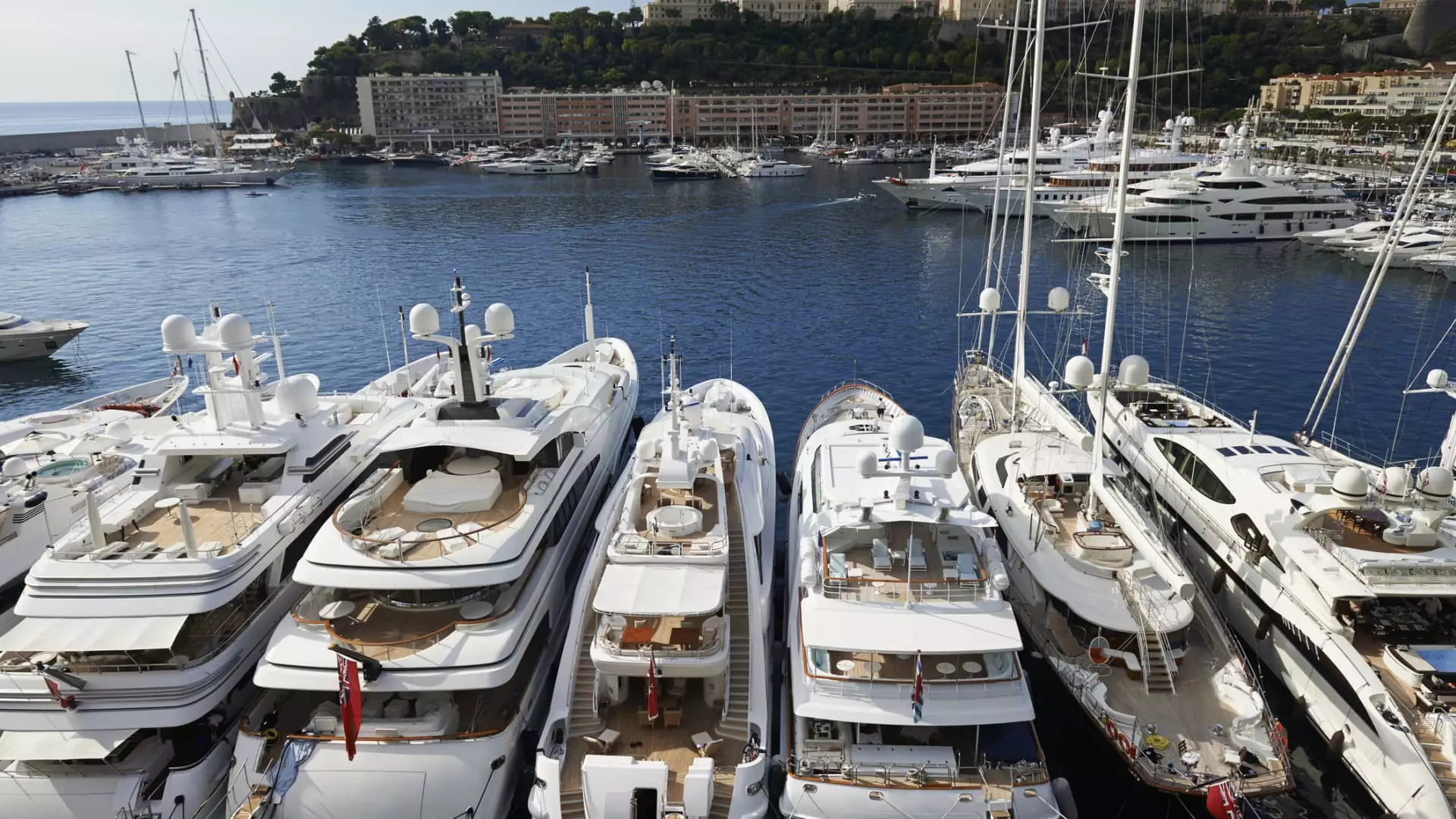In an era where economic policies often seem disconnected from reality, the recent announcement of a 15% tariff on European-made recreational boats exposes a glaring flaw in how the wealthy are perceived and treated within our borders. While it’s tempting to dismiss the impact of such tariffs as inconsequential to millionaires and billionaires, the truth is far more insidious. These tariffs threaten to distort a luxury market that has long symbolized American wealth and ingenuity. What is ostensibly a trade decision aimed at global economic recalibration instead risks creating divisions within our own social class, redistributing access to exclusivity rather than expanding it.
The European yacht industry, which dominates the high-end recreational boat market, stands on the brink of a crisis. The U.S. is arguably its most lucrative consumer base, with American buyers financing the creation of some of the world’s most prestigious vessels. But as tariffs drive up costs and complicate transactions, a growing number of affluent Americans will be faced with a harsh choice: pay more, settle for less, or seek workarounds. These choices expose an uncomfortable truth—luxury is increasingly divergent, tailored to those with the most resources to maneuver around economic barriers. The wealthy, in essence, will become even more insulated from the adverse effects of tariffs, perpetuating an elite class that can maintain its privileges by strategic financial manipulation.
Strategic Evasion and Its Moral Implications
The original intent behind tariffs is to protect domestic industries and promote fair trade, but when the impacted commodities are symbols of power and status, such motives begin to look hypocritical. Wealthy yacht owners will not be blindsided by policies that threaten to diminish their buying power; instead, they will adapt. Registering yachts in foreign jurisdictions is an innovative, albeit controversial, response—one that underscores the manipulation of legal loopholes designed for regulatory efficiency, but now exploited to sidestep economic fairness.
This strategic “foreign flagging” isn’t just a technicality; it’s a reflection of a broader trend where economic policy no longer aligns with moral fairness. The wealthy’s ability to leverage global legal frameworks creates a layered economic system where privilege begets more privilege. This divide becomes emblematic of a society increasingly fractured along lines of economic capability. The idea that a yacht owner can simply avoid a 15% tariff by paying a foreign registration fee highlights how policy can unintentionally entrench disparities—those with sufficient means will escape the financial heat, while the smaller craft or less resourceful owners will bear the burden.
The Economic and Social Risks of a Selective Luxury Market
The consequences for American industry are nuanced but profound. U.S. shipbuilders might see an uptick in demand for domestically produced yachts, but only in the rarefied echelon capable of absorbing or circumventing tariffs. The preowned yacht market, already teetering after the pandemic-induced surge, might stabilize or even surge for American-registered vessels. Yet, this potential market correction is more of an exception than a rule, as the rich’s adaptability ensures they will find a way around economic restrictions.
More troubling, perhaps, is the long-term societal message. When policies favor the ability of the wealthy to evade costs or manipulate regulations, it fosters a sense of disconnect and inequality. The American dream, once rooted in equal opportunity, is subtly transformed into a game of financial chess where privilege grants the ability to manipulate policy outcomes. This not only weakens the moral authority of such tariffs but also risks stoking resentment among the broader middle class, who see these loopholes and realize that economic barriers are only fleeting for the privileged few.
In this context, the tariffs serve as a symbol of the shifting landscape—one where economic policies designed to protect weaker domestic industries are co-opted by those with the means to bypass them. The resulting landscape is a dual economy: one for the elite who can manipulate the system, and one for everyone else who bears the costs of inefficiency and inequality. If such policies are to serve the broader economic interest, they must be paired with safeguards that prevent the rich from exploiting loopholes designed for fairness, lest they deepen the societal divide further.

